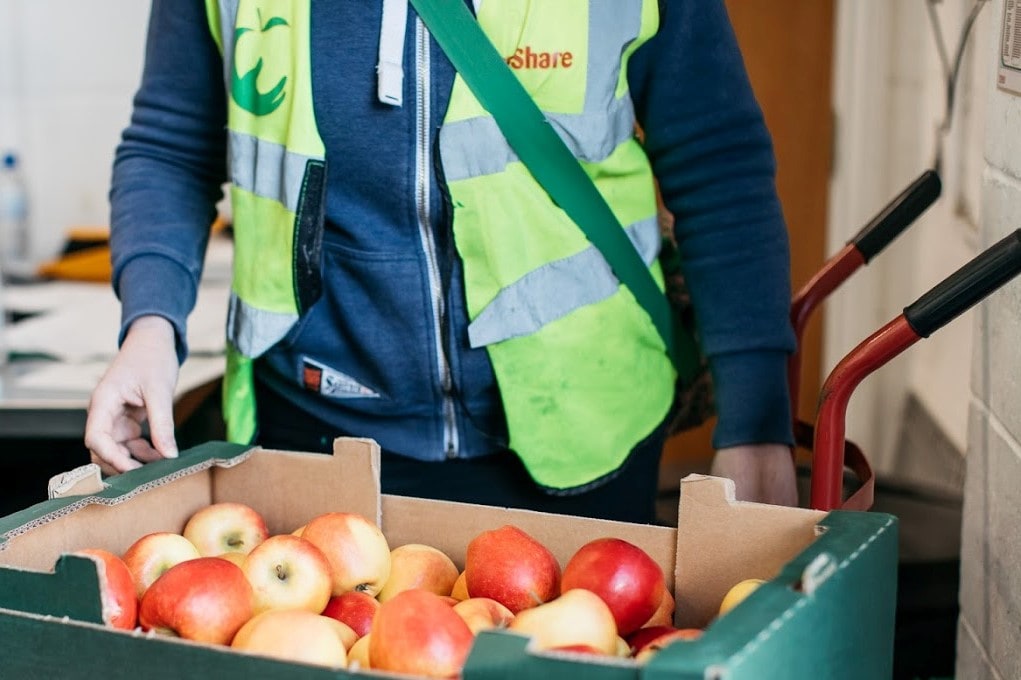
If food waste was a country it would have the world’s third biggest carbon footprint after China and the US. It’s a staggering fact asserted by Waste and Resources Action Programme (WRAP), charity that this week launches its first ever Food Waste Action Week, in an an attempt to increase focus on the impact food waste has on the planet. This adds to WRAP’s successful Guardians of Grub campaign.
Taking place from 1-7 March 2, Food Waste Action Week is intended as a rallying cry for citizens and businesses of the UK to take action. “I’m delighted to be launching the first UK Food Waste Action Week today and to be able to support our partners in the hospitality industry at this difficult time,” said Marcus Gover, CEO of WRAP.
“Together we will inspire real and lasting change. Food Waste Action Week gives organisations a unique opportunity to capture their audiences’ attention as part of a national event and help them to play their part in eliminating food being wasted and tackling climate change. We look forward to working with Compass on this important initiative.”
The initiate is welcomed by a sector reeling from the impact of Covid-19 but all too aware of the challenges posed by waste in the future, “Creating a week in the calendar dedicated to reducing food waste is long overdue. We wholeheartedly support Food Waste Action Week and would urge all foodservice businesses to take this opportunity to tool up with WRAP’s excellent Guardians of Grub resources so they maximise the amount of food they feed people and not bins, while minimising costs and their impact on the planet,” says Juliane Caillouette Noble, managing director, Sustainable Restaurant Association.
Protecting the planet – and profits
Education is vital for individual households on how they can help, but much remains for business to contribute to the effort: 30% of man-made global greenhouse gases are created from the production and consumption of food. In the hospitality and foodservice sector, 1.2 million tonnes of food are thrown away every year, and 75% of that could have been eaten. Wasted food costs the industry £3.2bn every year.
As part of the action week, Wrap is hosting an interactive webinar on what foodservice businesses can do to reduce waste and protect profits. A panel including UKHospitality CEO Kate Nicholls and operators and sustainability experts will tackle the issue during the session on Thursday 4 March, 2pm, which is free to join and open for registration.
Industry getting on board
Adam Handling, chef owner of several London restaurant, is a supporter of the campaign. “I’m so excited to be supporting WRAP’s first ever Food Waste Action Week to help spread awareness of our wasted food and how it’s impacting our environment. It’s an issue that has always been close to my heart when running my restaurants, and I’m really looking forward to sharing some of my tips for reducing food waste as part of this campaign, both for inspiring home cooks and for other bar and restaurant owners,” he says.
“As a population, we waste so much food needlessly when all it takes is a bit of creativity to turn ingredients that may have been thought of as waste into delicious meals. That’s why this campaign is so important, so that we can all learn more and play our part in the food waste fight.”
Commercial catering and food services supplier Compass Group already runs its own waste awareness day on 28 April and has partnered with WRAP for this week-long campaign. “As the UK and Ireland’s largest food and support services provider, we have both a responsibility and an opportunity to make a real difference in the fight against food waste and reduce our impact on the planet,” said Celena Fernandez, head of environment, Compass Group UK & Ireland.
“It’s important we support other organisations like WRAP, to help our industry and people at home. We can all make a huge difference by making small changes to reduce food waste.”
Tina Nielsen
